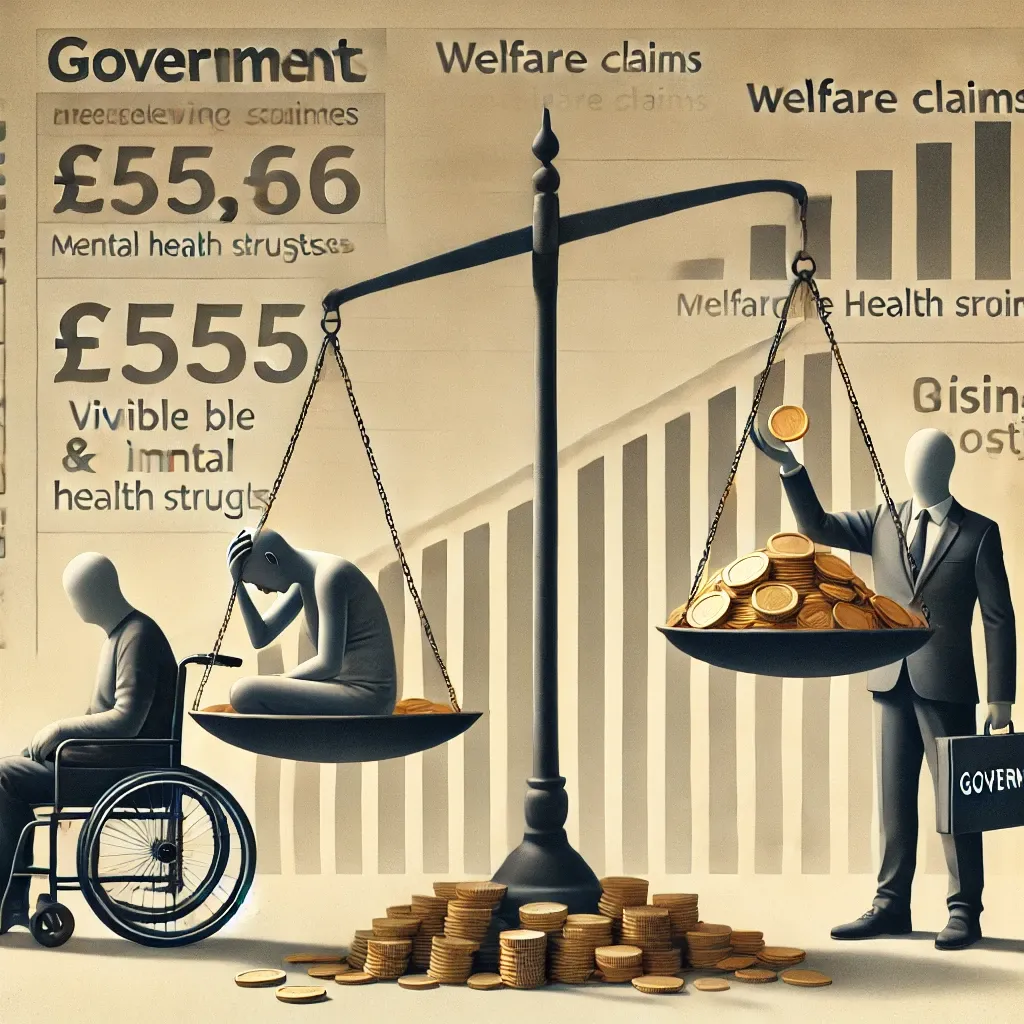I deal with a lot of benefit claims across my two jobs and I've become much more critical of welfare benefits as a result.
Being long term sick or disabled potentially entitles you to be able to claim PIP (personal independence payment) and also you might get more money for being placed in the 'not fit for work group'.
The later will net you an additional £100 a month, and usually if you get that you'll probably get at least one of the PIP awards, which is going to range from around £80 up to £500 a month depending on what components you get.
Now obviously there are plenty of people that are genuinely entitled and in need, but I've seen more than one person who is clearly faking it - for example stating certain limited mobility and then I've seen them a few days later clearly MORE mobile...

The broader picture....
Latest figures show that 3.3 million working-age Britons are currently claiming incapacity benefits—700,000 more than the pre-Covid level. Of these, 2.4 million are on higher-rate benefits for mental health problems, and estimates suggest that figure will hit 900,000 by 2024. The total cost of health-related benefits is put at almost £66 billion and is set to rise to £100 billion over the next decade.
Today, an individual who is 30 years old is twice as likely to claim disability benefits as their counterpart who was living two decades ago.
Additionally, a study conducted recently determined that 63,000 young men and women aged 16 to 24 skipped education to claim long-term sickness benefit.
This is more than a budget crisis." Work and Pensions Secretary Mel Stride has vowed to act decisively to "get a grip on the benefits bill" and is considering introducing a "work requirement" for those considered capable of doing some form of work.
But there is little sign that the Government's post-pandemic welfare strategy is bearing fruit. In the past month, the number of people moving off incapacity benefits and into work has fallen to a low since the first lockdown in 2020.
Statistics from the National Institute of Economic and Social Research showed that whereas 21% of claimants of incapacity benefits had moved into employment in June 2022 after being on benefits in early 2021, since then that percentage has fallen to 14%—with the transfers pipeline falling steadily.
Moreover, the Institute for Fiscal Studies has established that health-related benefit claim success rates over the past year increased from 45% to 65%, which suggests that the Government has "relaxed its approach to making claims."
Only last month, a cross-party Lords report called for radical overhauls of the system: in the longer term, by merging sickness benefits with universal credit, and short term, by increasing the number of staff to handle claims. In a post-Covid Britain with fewer working-age individuals in employment and benefits costing more at a fast rate, the next Whitehall challenge is how far—and how quickly—to push these changes, not only to protect public finances but to address the age-old issue of hundreds of thousands of individuals stuck on the benefits system.
Final Thoughts... change already in the air...?
NB I think the clamp down may have already started... I helped with some sickness benefit renewals where people have got worse since their last claim and then been refused on renewal, which suggests a tightening up...
However I'm not so sure this is being applied fairly, there needs to be a balance to make sure those who need those benefits get them, rather than broad cuts potentially creating an even larger bill for care a few years down the line!